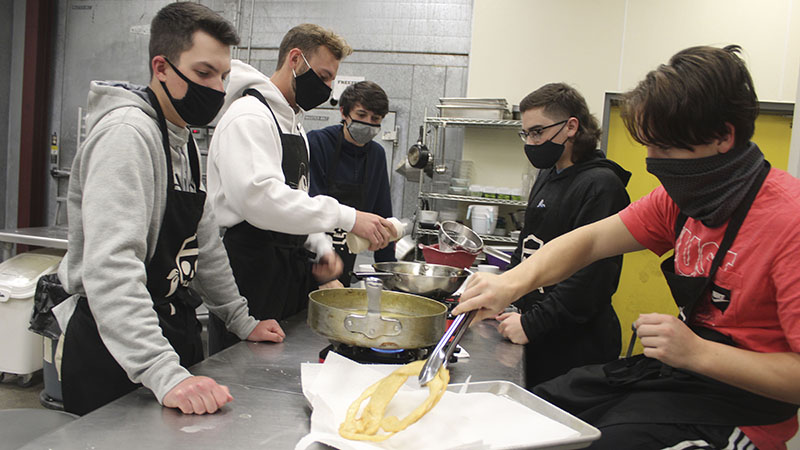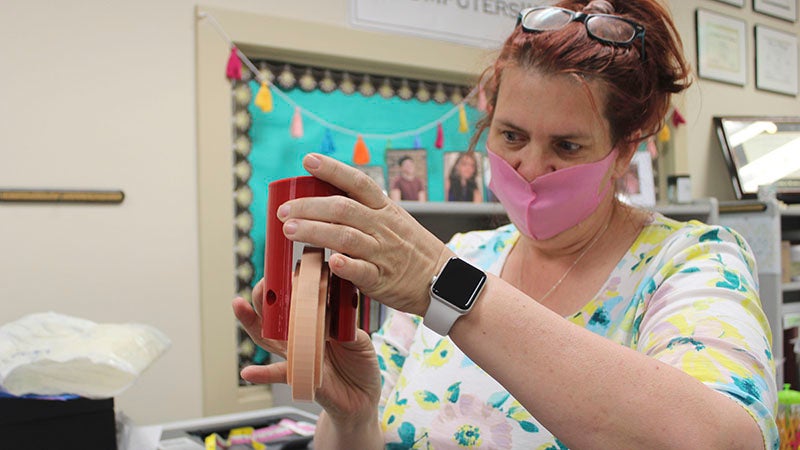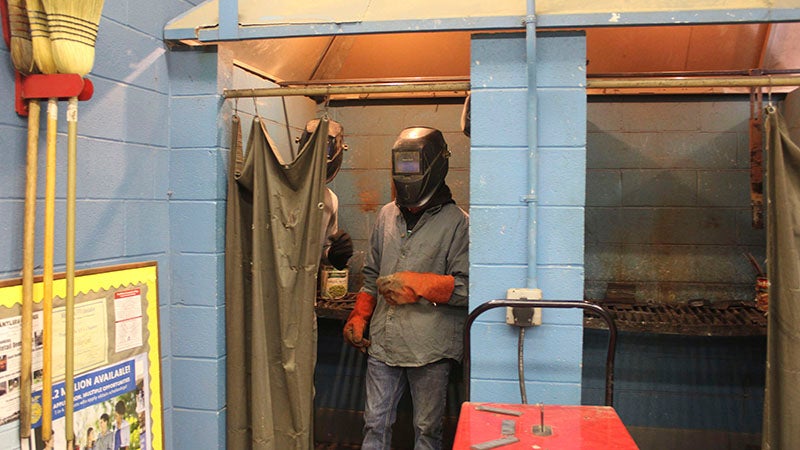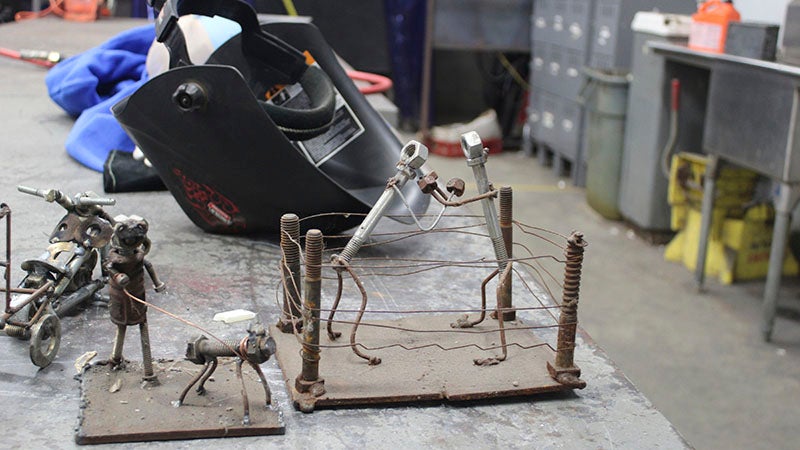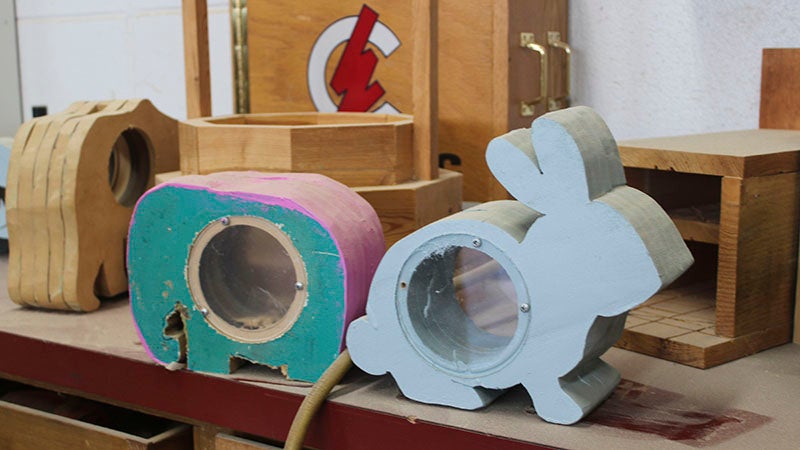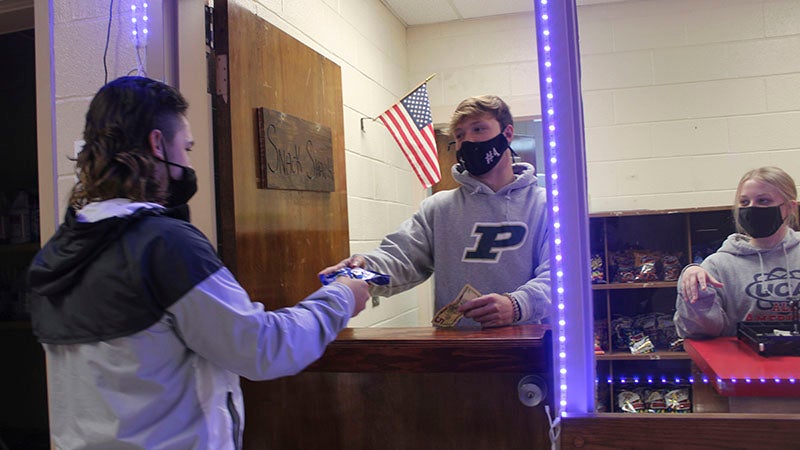Getting hands on with education
Published 7:00 am Saturday, March 13, 2021
Students throughout the county are engaged in hands on learning and can range from welding trailers, cooking funnel cake, shadowing teachers and 3-D printing prosthetics for dogs.
The Career and Technical Education programs at the Pearl River Central High School, Picayune Memorial High School and Poplarville High School aim to prepare students for careers in a wide variety of fields, whether they’re interested in IT, medicine, construction or architecture.
“We’re the fun classes because the kids actually get to get in here and get their hands dirty. They actually get to get in here and see real life application,” said Poplarville CTE Counselor Shelly Dement.
In many of the career pathways, students earn certifications that may help them find work right out of high school, or they can qualify for scholarships that will help pay for an education related to their career pathway.
Tracks available
Pearl River Central High School offers six career pathways: the teacher academy, health science, culinary arts, information technology, welding and early childhood education.
Poplarville High School also offers six career pathways: culinary arts, digital media, health science, marketing, teacher academy and agricultural science.
Picayune Memorial High School offers nine programs, business marketing and finance, finance and accounting, health sciences, sports medicine, automotive services, architecture and drafting, engineering, carpentry and early childhood education.
Getting career ready
In Poplarville’s CTE building, students in Janet Gaspard’s marketing class run a snack stand, getting hands on experience marketing and selling goods to their fellow students, while across the hall Todd Smith’s health sciences class learn CPR on a practice dummy. JT Thomas prepares his welding students for an FFA competition.
Down the hall in Donna Baxter’s digital media class, students can learn a wide range of skills: photography, video production and editing, music production and digital art. The curriculum for her class changes with changing technology and next year the course will add an entire unit on social media management.
Students in her class have gone on to work in craft services, as tattoo artists, in video production and as freelance graphic designers and photographers.
Baxter sets project parameters and then gets to watch her students explore creatively.
“There’s a niche for everybody and a lot of kids who don’t fit anywhere else fit here,” she said.
Emma Spiers believes Pearl River Central’s health sciences program will help her prepare to become a nutritionist, a career path she plans to pursue in college. She’s already learned medical terminology, laws about patient rights, information about diseases and how different systems in the body work.
Pearl River Central senior James Gibson believes his welding classes will prepare him to step into the career he wants immediately after graduation. Gibson’s father and grandparents are in the construction field, so he’s seen the opportunity that welding can provide as a well-paid career.
“I’m in the field right now working as a welder and Coach McRaney taught us a lot of stuff. He’s shown us how to weld different techniques, uphill, downhill, horizontal, vertical, overhead.”
Some days the class works on projects such as adding a bedroom to a church bus. Other times they use their welding skills to create metal art work, or they may work on test plates or review notes for their certification test.
In Misti Dean’s culinary arts class, students worked with German language learning students to make krapfen, German biscuits similar to a donut. As is tradition, one of the donuts was filled with mustard, a surprise joke on the unsuspecting eaters.
“One kid ate the mustard filled one as if nothing was wrong,” said Dean.
The culinary arts students also developed their own funnel cake recipes. Second year CTE student Cameron Brunson said he wasn’t passionate about cooking, but signed up for the class because he was excited to take any class taught by culinary arts instructor Quentin McCardle.
McCardle passed away after a car accident in December.
“These year two kids especially have a had a lot of grief. It’s been really hard for them to come back into that class,” said CTE Director Kelli Herrin.
McCardle was an outstanding and caring teacher, she said. which is why many students signed up for the class,
“We’re grateful Ms. Dean came in and took over the cooking class. Their education has not suffered because of tragedy.”
Picayune Memorial High School junior Ariel Goynes wants to specialize in veterinary medicine, and she believes the school’s health sciences program is helping her to prepare for the career field. She’s been able to learn about human anatomy, taking vitals and medical terminology.
“Ms. Haley really is an amazing teacher,” said Goynes.
The class is taught by Haley Wells, who like every teacher in the program, is qualified in the field she’s teaching due to her background as a nurse.
In Chris Griffith’s sports medicine class, Griffith applies KT tape to senior Mitchell Harper’s arm before a baseball game. The tape lifts skin off ligaments and serves as a brace.
In his freshman year, Harper wanted to learn more about what the sports trainers do and has gained knowledge on sports health.
“It benefits me as an overall athlete,” he said.
In Erin Clement’s engineering class, students are also practically applying their hands on education by creating a prosthetic leg for a rescue dog.
The dog is missing a leg from its shoulder down so students are working on prosthetic prototypes. They began by taking measurements and creating a sample sling and have moved on to 3-D printing prototypes for a prosthetic foot and joint.
Construction students in Evan Byrd’s class are also building projects. Whether they’re building marble drops, picnic tables or cornhole boards, most students start the program without a carpentry skills. They can finish the program with an NCER certification, which would count as two years of on-the-job training.
“It’s a lot of fun teaching the kids. Their imaginations are endless,” said Byrd.


